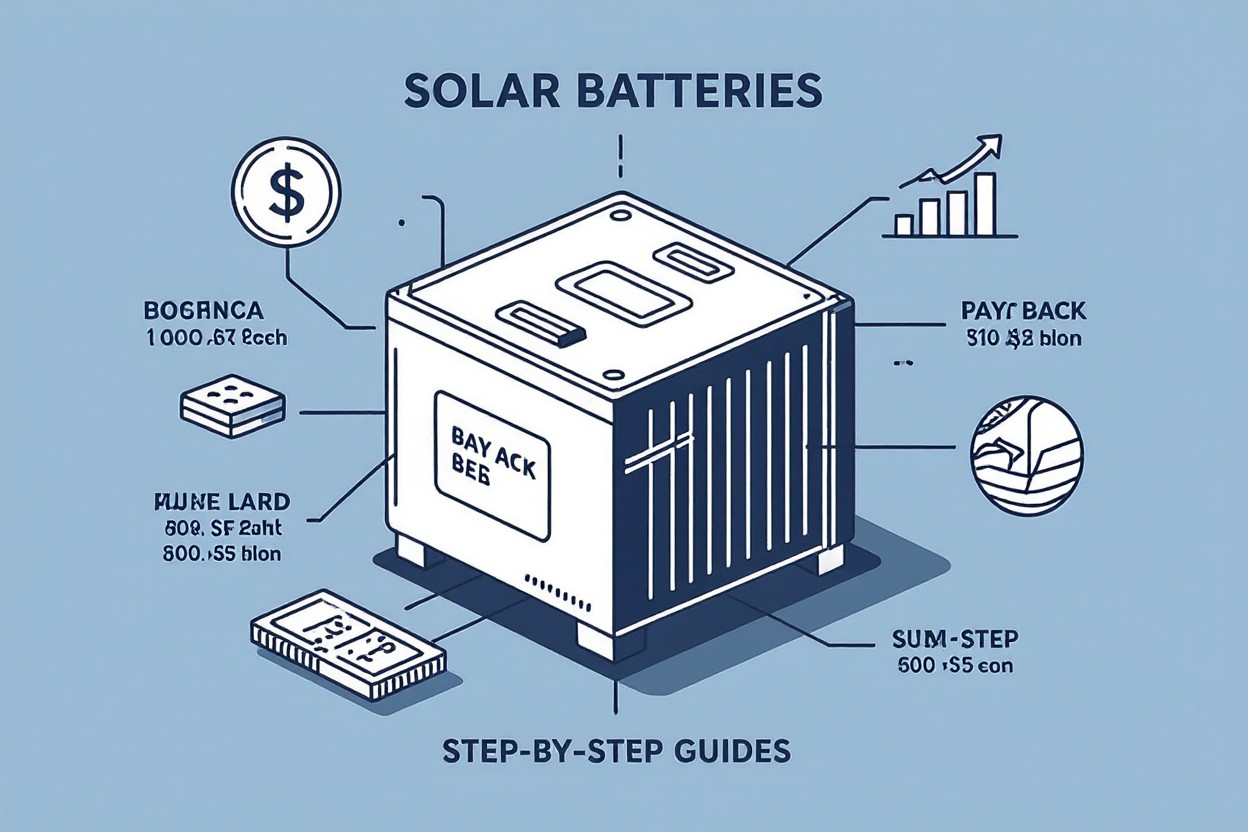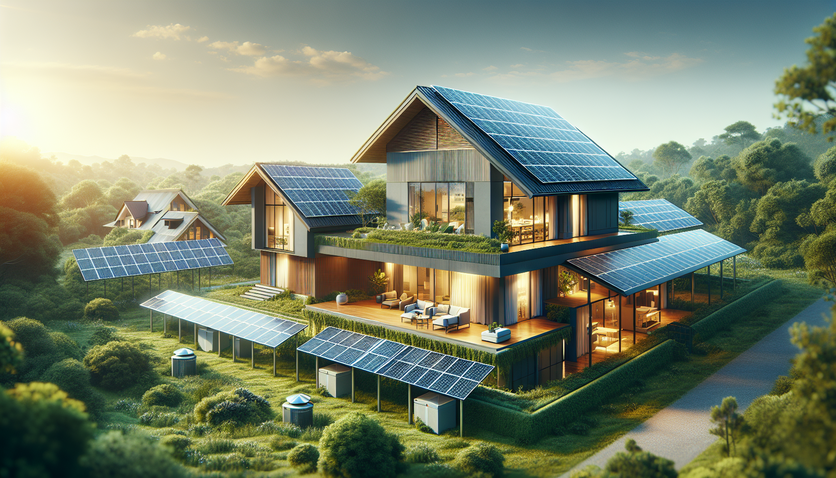Getting Started with Solar Panels for Campers
When it comes to camping, harnessing the power of the sun through solar panels offers an incredible way to enjoy the great outdoors while maintaining comfort and convenience. Solar energy systems are ideal for campers who want to power lights, charge devices, and run small appliances without relying on noisy generators or grappling with limited battery life. Here’s what you need to know to get started.
Benefits of Solar Panels for Camping
- Energy Independence: Solar panels allow you to have a renewable source of energy while off-grid, giving you the freedom to camp in remote locations without sacrificing the comforts of home.
- Cost Savings: Over time, solar panels can save you money on energy costs, as fuel costs for generators and battery replacements can add up. Investing in a solar kit can often pay for itself after a few camping trips.
- Environmental Impact: Using solar energy reduces your carbon footprint, contributing to a more sustainable camping experience by minimizing reliance on fossil fuels.
- Quiet Operation: Unlike gas-powered generators, solar panels operate silently, allowing you to enjoy the sounds of nature without the interruption of machinery noise.
- Low Maintenance: Solar panels require very little maintenance. With proper installation and care, a solar energy system can last for decades without significant issues.
To explore more about the financial implications of solar investments, check our comprehensive guides on solar power costs and the actual costs of solar panels.
Selecting a Solar Panel System for Your Camper
When choosing a solar panel system, consider the following factors:
- Power Needs: Assess the total wattage of the devices and appliances you plan to use while camping. This will help determine the size and capacity of the solar panel system you need.
- Type of Solar Panels: There are different types of solar panels (monocrystalline, polycrystalline, and thin-film), each with its pros and cons. Monocrystalline panels are generally more efficient and occupy less space, while polycrystalline panels are typically more cost-effective.
- Battery Storage: Decide if you want a system that includes battery storage for use when sunlight isn’t available. This is especially important for overnight use or in shaded areas.
- Installation: Many solar panel kits for campers are designed for easy installation, often coming with all necessary components. Make sure you understand how to set up your system for maximum efficiency.
- Portability: If you frequently move between campsites, consider portable solar panels that can be easily set up and taken down.
The journey towards solar energy for your next camping adventure not only enhances your experience but also aligns with a sustainable lifestyle. With careful planning and selection, you can enjoy the great outdoors with the benefits of modern convenience.
Pros and Cons
Pros
- Energy Independence: Solar panels allow campers to harness their own energy, leading to greater self-sufficiency while off-grid. This means reduced reliance on fuel generators or external power sources.
- Cost Savings: Over time, using solar energy can significantly lower energy expenses. After the initial investment, the ongoing cost of solar energy is minimal, especially compared to traditional fuel costs.
- Environmentally Friendly: Solar panels produce clean, renewable energy without harmful emissions. This is a significant advantage for eco-conscious campers looking to minimize their carbon footprint.
- Low Maintenance: Once installed, solar panels generally require minimal maintenance. Regular cleaning and occasional checks are usually sufficient to keep systems running efficiently.
- Increased Comfort: With a reliable power source, campers can enjoy modern conveniences like refrigeration, lighting, and charging devices, enhancing their overall camping experience.
Cons
- Initial Cost: The upfront cost of purchasing and installing solar panel systems can be significant, potentially deterring some consumers from choosing solar energy solutions.
- Weather Dependent: Solar energy generation can be inconsistent, heavily reliant on sunny weather. This variability might limit power availability in cloudy or rainy conditions, especially in remote areas.
- Space Requirements: Solar panels require adequate space for installation. In camper settings, finding sufficient roof or ground space can be challenging.
- Battery Limitations: If solar power storage solutions like batteries are not included, campers may need to rely on direct sunlight for energy, which can be problematic during peak usage times.
- Power Limitations: Depending on the size of the solar panel system, the power generated may not be sufficient for high-energy appliances, requiring careful energy management.
For further insights into the costs and benefits of solar systems, consider reviewing our article on solar power investments.
Installation Tips for Solar Panels on Campers
Mounting Strategies
When installing solar panels on campers, choose a mounting method that ensures stability and ease of access for maintenance. Rooftop mounts are the most common, utilizing brackets or racks to secure panels. Ensure they lie flat to reduce wind resistance and improve aesthetics. Consider tilting mounts to maximize sunlight exposure; these allow adjustments based on seasonal sun angles. Additionally, side mounts are useful for maximizing space on compact campers, though they require careful consideration of potential shading from nearby structures.
Electrical Wiring Tips
Achieving a safe and efficient solar panel installation involves meticulous wiring practices. Use solar-rated cables and ensure they are secured and protected against abrasion and environmental exposure. Employ MC4 connectors for reliable connections that can withstand outdoor elements. Maintain short cable runs to minimize voltage drop, ideally under 30 feet. Use fuses or circuit breakers to protect your solar system from short circuits or overload, ensuring you equip them according to your system’s power output.
Maintenance Best Practices
Regular maintenance extends the life and efficiency of your solar panel system. Keep panels clean; dust, leaves, and snow can significantly reduce efficiency. A simple rinse with water typically suffices, but avoid abrasive materials that can scratch the panel surface. Check connections and equipment every few months to detect wear or corrosion. Consider implementing a monitoring system to track your system’s performance and spot irregularities early.
By adhering to these installation tips, you can enhance both the performance and longevity of your camper’s solar power system, ensuring you enjoy reliable energy during your travels. For more detailed information on the benefits and costs of solar panel adoption, see our guide on Solar Power: Is It Worth the Investment?.
“Harnessing the sun’s power allows you to enjoy the great outdoors without compromise.” – MyOffGridHome
Frequently Asked Questions
What are solar panels for campers, and how do they work?
Solar panels for campers convert sunlight into electricity, providing a sustainable power source for various devices while on-the-go. Typically, they consist of photovoltaic cells that absorb sunlight and generate electricity through the photovoltaic effect. This electricity can power appliances, lights, and other devices, enhancing the camping experience.
How much do solar panels for campers cost?
The cost of solar panels for campers can vary widely depending on the type, wattage, and brand. On average, camper solar panels range from $100 to $500. Additionally, the investment may include battery systems and installation, which can increase the overall cost. For detailed pricing information, see our guide on how much do solar panels really cost.
Do I need batteries for solar panels on my camper?
While batteries are not mandatory, they are highly recommended for maximizing the benefits of solar panels. Batteries store excess energy generated during the day for use at night or during low sunlight conditions, ensuring a reliable power supply. For more on battery options and costs, check our article on solar batteries.
Can I install solar panels on my camper myself?
Yes, many camper solar panel systems are designed for easy installation, allowing DIY enthusiasts to set up their systems without professional help. However, having a basic understanding of electrical systems and following safety guidelines is crucial. Detailed instructions can often be found in the product manual or on manufacturer websites.
What types of solar panels are best for campers?
There are generally three types of solar panels suitable for campers:
- Monocrystalline Panels: Efficient and space-saving but more expensive.
- Polycrystalline Panels: Slightly less efficient but generally more affordable.
- Flexible Panels: Lightweight and ideal for curved surfaces but with lower efficiency.
Each type has its pros and cons, so consider your camping needs when choosing a panel.
How much power can I expect from solar panels for my camper?
The amount of power generated by solar panels depends on factors like the panel’s wattage and the amount of sunlight available. A typical 100-watt panel can produce about 300 watt-hours of electricity per day in optimal conditions, which is enough to power small electronics, lights, and chargers.
Are there regulations I need to know about when installing solar panels on my camper?
Regulations can vary by location and type of installation, so it’s essential to check local laws and regulations regarding solar installations on vehicles. This can include any necessary permits or specific restrictions to adhere to. Always ensure that your installation complies with safety standards and best practices.





